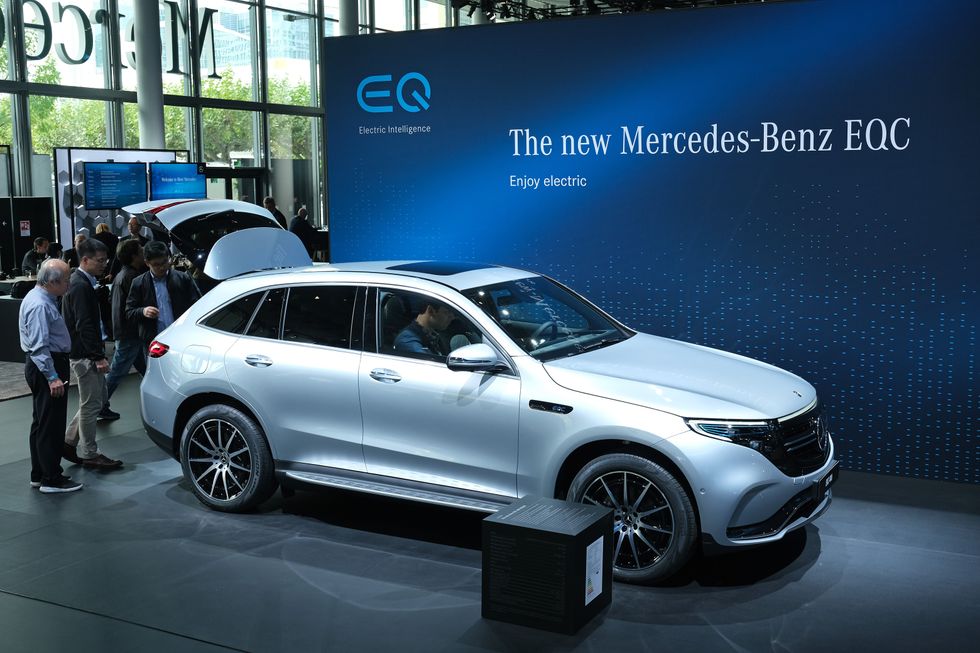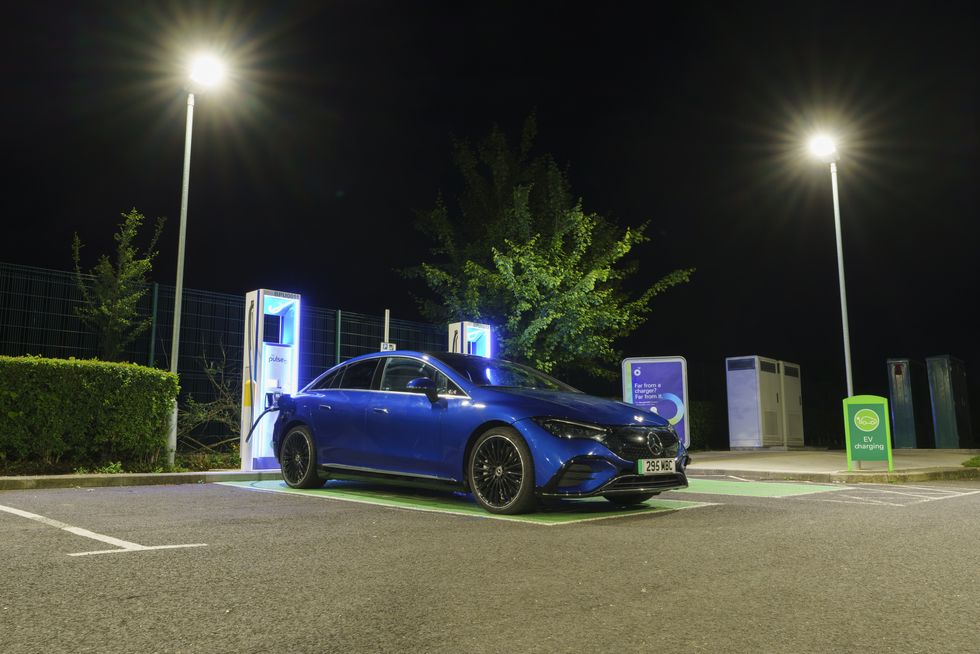Drivers still have concerns about charging infrastructure and a lack of suitable models
Don't Miss
Most Read
Trending on GB News
One of the most popular car brands in the world has vowed to push ahead with new vehicles powered by petrol and diesel engines amid a slump in demand for electric cars.
Mercedes-Benz has confirmed that it will update its combustion engine lineup “well into next decade” after a slowdown in electric vehicle demand.
Targets previously set out by the German brand stated the brand had been preparing for all-electric sales by the end of this decade.
However, it has now stated that it expects electrified sales – which includes hybrid vehicles – to account for up to 50 per cent of the total by 2030.

Mercedes-Benz originally planned to be all-electric by 2030
GETTY
Ola Kaellenius, CEO of Mercedes-Benz, warned in 2023 that Europe would likely not be ready for an all-electric lineup by the end of the decade.
He cited data that found that drivers were holding back from investing in electric as a result of expensive upfront prices and a lack of charging provisions.
The 54-year-old reassured motorists and investors that the brand was well-positioned to continue production of vehicles with internal combustion engines.
He said: “It is almost like we will have a new lineup in 2027 that will take us well into the 2030s,” Reuters reported.
In 2023, Mercedes-Benz Group sold almost 2.5 million vehicles despite a number of supply chain constraints and a hangover from the pandemic causing production issues.
Fully electric passenger car sales from the brand jumped by an impressive 73 per cent during 2023 to 222,600 units, representing 11 per cent of overall sales and 19 per cent when including hybrids.
Mercedes-Benz currently sells a number of popular electric models including the EQE and EQS saloons and the EQA, EQB, EQE and EQS SUV models.
Speaking earlier this year, Ola Kaellenius said: “Sales in 2023 show that Top-End Vehicles including Mercedes-Maybach, G-Class and Mercedes-AMG delivered their best-ever performance.
“Electric vehicle sales continue to rise and particularly the new E-Class is being well received. Mercedes-Benz Vans also had their most successful sales so far.
“This year we will maintain our product momentum especially thanks to the electric G-Class, the Mercedes-AMG GT Coupé and our new eSprinter.”
Manufacturers have been pressured to cut costs to ensure uptake of EVs continues amid flailing levels of demand.
Some brands have launched grant schemes to help drivers more easily access zero emission vehicles, including Fiat and Vauxhall.
LATEST DEVELOPMENTS:
- DVLA issues urgent number plate warning as drivers could face £1,000 fine before March changes
- British motorists demand urgent driving law changes including fuel duty cuts, higher speed limits and more
- Electric car charger to be removed over cybersecurity fears that hackers could target the National Grid

Mercedes-Benz already sells a number of EVs including the EQE 350+
MERCEDES-BENZ
Chargers also remain an issue for motorists with fears around whether the UK has the capacity for public charging.
Despite plans to install 300,000 charging stations across the UK by the end of the decade, there are only 55,000 devices as of January 2024.









